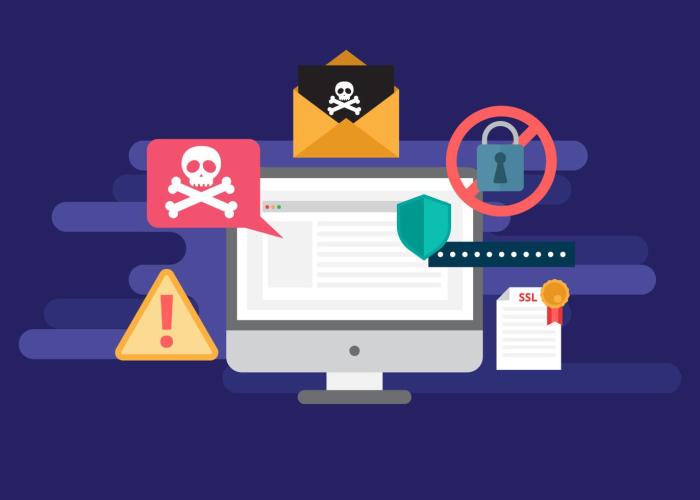Crypto security measures are crucial in protecting your investments and data in the ever-evolving world of cryptocurrency. From understanding the risks to implementing best practices, this guide dives deep into the realm of crypto security to keep you informed and secure.
As we navigate through the landscape of digital currencies, one thing remains clear: the importance of prioritizing security measures cannot be overstated.
Importance of Crypto Security Measures
Implementing robust security measures in the crypto space is crucial to safeguarding digital assets and protecting sensitive information. With the increasing popularity of cryptocurrencies, the risk of cyber attacks and theft has also grown significantly. Inadequate security practices can expose individuals and organizations to various threats, such as hacking, phishing, and malware attacks.
Potential Risks of Inadequate Security Practices
- Loss of Funds: Without proper security measures, users risk losing their cryptocurrency holdings to hackers who can exploit vulnerabilities in wallets or exchanges.
- Data Breaches: Inadequate security can lead to unauthorized access to personal information, including private keys, passwords, and transaction details.
- Market Manipulation: Cybercriminals can manipulate the value of cryptocurrencies by targeting exchanges or trading platforms with weak security protocols.
Historical Security Breaches
- Mt. Gox: One of the most infamous security breaches in the history of cryptocurrencies, Mt. Gox, once the largest Bitcoin exchange, lost over 850,000 bitcoins due to poor security practices.
- Coincheck: In 2018, Coincheck, a Japanese cryptocurrency exchange, suffered a massive hack that resulted in the loss of over $500 million worth of NEM tokens.
- Bitfinex: In 2016, Bitfinex, a major cryptocurrency exchange, was hacked, resulting in the theft of 120,000 bitcoins, valued at around $72 million at the time.
Common Crypto Security Threats
Cybersecurity threats pose significant risks to individuals and organizations involved in the crypto industry. These threats can compromise sensitive information, lead to financial losses, and damage reputations.
Phishing Attacks
Phishing attacks involve fraudsters posing as legitimate entities to deceive individuals into sharing sensitive information such as login credentials or private keys. Once obtained, attackers can access crypto wallets and steal funds.
Malware
Malware is malicious software designed to infiltrate devices and steal information. In the crypto industry, malware can target wallets and exchanges, compromising the security of assets stored on these platforms.
Ransomware
Ransomware is a type of malware that encrypts files or systems, demanding payment in cryptocurrency for decryption. Organizations in the crypto industry are at risk of ransomware attacks, which can lead to financial losses and operational disruptions.
Security Incidents
Real-world examples of security incidents in the crypto industry include the Mt. Gox exchange hack in 2014, where approximately 850,000 bitcoins were stolen, and the Binance breach in 2019, resulting in the loss of over $40 million worth of cryptocurrency.
Best Practices for Enhancing Crypto Security

When it comes to securing your cryptocurrency assets, following best practices is crucial to protect your investments from cyber threats. Implementing strong security measures can help safeguard your wallets and exchanges from potential attacks.
Importance of Two-Factor Authentication
Two-factor authentication (2FA) adds an extra layer of security by requiring users to provide two different authentication factors to verify their identity. This can include something you know (like a password) and something you have (like a mobile device). By enabling 2FA, you can significantly reduce the risk of unauthorized access to your crypto accounts.
Encryption and Secure Password Management
Using encryption techniques to protect your private keys and sensitive information is essential for keeping your crypto assets safe. Additionally, practicing secure password management by creating strong, unique passwords and regularly updating them can help prevent unauthorized access to your accounts. Utilizing password managers can also enhance the security of your login credentials.
Understanding Cold Storage
Cold storage refers to storing your digital assets offline, away from internet-connected devices, to minimize the risk of hacking or theft. By keeping your cryptocurrencies in cold storage wallets or hardware devices, you can protect them from online threats such as malware or phishing attacks. Cold storage is considered one of the most secure methods for storing large amounts of crypto assets for the long term.
Emerging Trends in Crypto Security: Crypto Security Measures

Cryptocurrency security is constantly evolving to keep up with the ever-changing landscape of digital assets. Let’s delve into the latest trends and technologies that are shaping the future of crypto security.
Decentralized Finance (DeFi) Impact
Decentralized Finance (DeFi) has been a game-changer in the crypto space, offering a new way to access financial services without the need for traditional financial institutions. However, the rise of DeFi platforms has also introduced new security challenges, such as smart contract vulnerabilities and decentralized exchange risks. As DeFi continues to gain popularity, developers are working on innovative solutions to enhance security measures and protect users’ funds.
Blockchain Technology in Security, Crypto security measures
Blockchain technology plays a crucial role in enhancing security and transparency in cryptocurrency transactions. By utilizing decentralized and immutable ledgers, blockchain ensures that transactions are secure and tamper-proof. Moreover, the use of cryptographic techniques in blockchain technology provides an extra layer of security, making it extremely difficult for malicious actors to manipulate transaction data. As blockchain continues to advance, we can expect to see even more robust security features implemented to safeguard the integrity of digital assets.